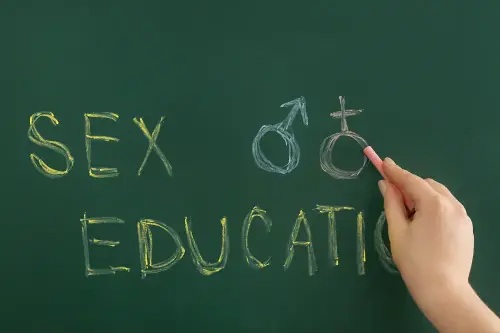
SHAH ALAM - The call by Youth and Sports Minister Hannah Yeoh to reform the national sex education syllabus has reignited public debate, with many parents and teenagers voicing hopes, concerns and expectations on how the subject should evolve to reflect today's digital reality without sidelining cultural and religious values.
Yeoh recently urged that sex education be introduced earlier in schools, instead of only at age 15, while also pushing for greater digital literacy among youths who were increasingly exposed to online content.
As discussions on the proposed changes unfolded, parents were calling for a more comprehensive approach that balances scientific facts with moral and emotional development.
At the same time, teenagers said they wanted clearer guidance on consent, relationships and boundaries.
Yusliza Yakimir Abdul Talib, 38, a translator and mother to a 14-year-old said she believed that the current syllabus was insufficient.
She welcomed Yeoh's call, but stressed that reforms must be made with cultural and religious sensitivity in mind.
She said the revised syllabus should reflect current realities by addressing issues such as pornography, peer pressure and sexual exploitation, while also offering clear guidance on building healthy relationships and self-respect.
"The current sex education syllabus in schools is still basic and mostly focused on biology and reproductive health only, overlooking important aspects such as emotional development, moral values and the modern-day challenges that teenagers face regarding their sexual life, especially in this digital age.
"It is inadequate, where it barely touches on structural issues such as the circulation of pornography, peer pressure to engage in sexual activities without thinking of consequences and how to address sexual exploitation. These are all important matters to raise awareness about among children as young as two years old, since education starts young.
"As a parent of a 14-year-old boy, I believe a more comprehensive approach is needed to help him become informed, respectful with the opposite gender and make responsible choices throughout his youth," she said.
She added that sex education was especially important in the digital age, where children were increasingly exposed to unfiltered online content.
She said young people today not only encountered explicit material, including the risk of addiction, but were also vulnerable to misinformation and other harmful influences that could negatively shape their understanding of sexuality and relationships.
"My son needs to understand the importance of concepts such as boundaries, his rights and how to protect himself from exploitation. These are lessons that schools should reinforce, alongside personal efforts from parents at home," she said.
Yusliza also pointed out that sex education should be tailored according to age and gender.
She said what was suitable for a younger child may not be appropriate for a teenager.
While values like respect and responsibility were universal, she said certain topics may be more relevant to either boys or girls and for this reason it was essential for the syllabus to be both age-appropriate and gender-sensitive
Meanwhile, Fadia Diana Khairuddin, 16, a student from a religious secondary school said sex education was hardly discussed in class.
She believed that schools should cover a broader range of topics, including emotional wellbeing and the foundations of healthy romantic relationships.
"We don’t talk about pornography, relationships or consent. Most of what I know comes from social media or friends," she said.
Fadia added that topics like sexual health beyond just pregnancy, menstruation, or basic body literacy should be normalised within the school curriculum, as social media was her main source of information on the subject.
Student Abdul Qahhar Abdul Muiz Dzihni, 16, echoed similar sentiments.
"We only learn how reproduction works. But that’s not enough. We should also learn about emotions, consent and how to deal with real-life situations," he said.
He said he often turned to social media for answers, although he knew the information may not always be reliable.
He said he would not feel comfortable asking questions in class as he feared he would be laughed at or be judged by other students.
He said if the syllabus were to be reformed, it should include more discussions on emotions, personal boundaries, and real-life scenarios, as normalising these topics could help students feel more comfortable and less embarrassed when raising their concerns.
